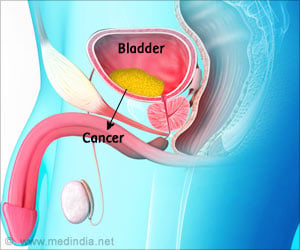
The Breakthrough Therapy designation is an U.S. FDA program intended to expedite development and review of drugs for serious or life-threatening conditions. The benefits of this designation include more intensive guidance on an efficient drug development program and submission strategy, as well as eligibility for rolling review. Preliminary clinical evidence demonstrating the drug may have substantial improvement on at least one clinically significant endpoint over available therapy is required for Breakthrough Therapy designation.
This Breakthrough Therapy designation was based on the results of a Phase II clinical trial (Study 205) of lenvatinib in advanced or metastatic renal cell carcinoma following one prior vascular endothelial growth factor-targeted therapy. From the results of the study, the combination of lenvatinib plus everolimus demonstrated a significant extension in progression free survival (PFS), the study's primary endpoint, compared to everolimus alone. Additionally, lenvatinib alone demonstrated an extension in PFS compared to everolimus alone. Both the lenvatinib plus everolimus group and the lenvatinib alone group showed an improvement in objective response rate compared to the everolimus alone group. Furthermore, an updated analysis carried out in December 2014 suggested that lenvatinib plus everolimus extends overall survival compared to everolimus alone. The most common treatment-emergent adverse events (TEAE) reported in the lenvatinib plus everolimus group were diarrhea, decreased appetite and fatigue. The most common TEAEs of Grade 3 or higher included diarrhea, hypertension and fatigue.
The number of patients with kidney cancer in 2012 was estimated to be approximately 338,000 worldwide, including 58,000 in the United States. Renal cell carcinoma comprises more than 90% of all malignancies of the kidney. For advanced or metastatic renal cell carcinoma that is difficult to treat with surgery, the standard treatment method is molecular targeted drug therapy, however with low 5-year survival rates, this remains a disease with significant unmet medical needs. According to the results of Study 205, lenvatinib plus everolimus showed superior PFS over everolimus alone which is recommended by the National Comprehensive Cancer Network (NCCN) guidelines as a 2nd-line therapy for advanced or metastatic renal cell carcinoma. Currently, no combination therapy for this indication has been approved in the United States, Europe or Japan.
Eisai has shared the results of Study 205 with regulatory authorities to discuss further steps regarding potential submission strategies for an indication covering renal cell carcinoma. Eisai is committed to exploring the potential clinical benefits of lenvatinib in order to further contribute to patients with cancer and their families.
Source-Medindia













